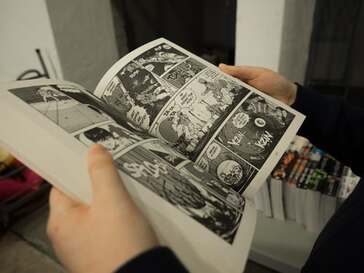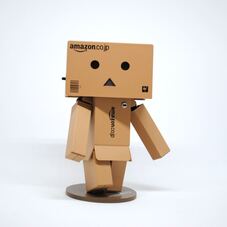|
by Erin Theresa Welsh  Publishing your own book is difficult. Actually, no, that doesn’t quite sum it up. Publishing your own book is stressful, time-consuming, and insanely difficult to achieve. Even if you get published, it is very unlikely you’ll become the next J.K. Rowling or Stephen King. Most average authors don’t make more than a regular mid-level salaried office position, and that's almost never off book sales alone. If an author wants to get published, it takes a lot of hard work to achieve that finished, beautifully bound piece of work. Not only does an author need to write and complete a lengthy piece of work, but they then need to choose how to publish it.
0 Comments
 Image provided by kylewagaman License CC BY-NC-SA 2.0 Source Flickr Image provided by kylewagaman License CC BY-NC-SA 2.0 Source Flickr by Elizabeth Mosolovich Halloween is a time for tricks and treats, when children--and some adults--run about in costume going door to door and asking for candy. Stories of monsters, ghosts, and witches become easier to believe as people decorate their houses with jack-o-lanterns, cobwebs, and gravestones. There are plenty of ways to get into the spirit of this holiday, including watching movies like Friday the 13th, or the more kid-friendly It’s the Great Pumpkin, Charlie Brown, as well as reading books like the old classic such as The Legend of Sleepy Hollow by Washington Irving or a new favorite like Scary Stories to Tell in the Dark by Alvin Schwartz. But Halloween is not for everybody. Though the holiday has become rather secularized, its origins are a mixture of pagan harvest festivals and the Roman Catholic feast days All Saints’ and Souls’ Days; therefore some Orthodox Jews and Muslims do not celebrate the holiday. Other Christian groups also refrain from partaking in Halloween festivities, as they dismiss the day because of its partially pagan beginnings and fear that celebrating Halloween equals celebrating witchcraft or Satanism. And those attitudes are fine--everyone is entitled to their opinion and to practice their religious beliefs freely. However, when these religious beliefs, especially fears about the occult and witchcraft, involve suppressing people’s access to literature, it becomes a problem.  Via Pixabay Via Pixabay by Megan Kiger So, I’d call myself a liar. Used-to-be outstanding liar, but maybe just above average now. My intentions are never anything more than comedic (or dramatic) relief. We all love drama, and we all lie about that too. When I was little, I’d come up with intricate stories to cover my ass when I was in trouble or embarrassed (or just to make things interesting, you know?). I had a crush on a boy named Zach when I was ten. He had this ashy kind of blond hair and green eyes that I was obsessed with. I asked him if he wanted to swing with me at recess and he said no. He actually pretty rudely refused and laughed at me with his friends. I remember my throat swelling while I tried to keep the hysterics contained to my stomach.  by Christopher M. Comparri The appeal of books, movies, television and any sort of story-telling platform can be boiled down to two key components: having a great story and having great characters to fill out said story. As viewers and readers, we often find ourselves rooting for certain characters and despising others to the pits of our very soul. This can be for any number of reasons: rooting for the underdog, finding a character that is relatable, finding one that embodies the essence of what we feel is right or wrong with the world. Finding the handful of characters that you feel strongly about builds an emotional tie between the content produced and the individual consuming it. However, the trend of incorporating huge casts of characters into stories is now having an adverse effect. People are finding too many characters to like or hate in passing. These characters are being masked as huge markers in a story, but the reality is quite different. In literature, sometimes less is more.
|
Archives
July 2024
Categories
All
|
|
Glassworks is a publication of Rowan University's Master of Arts in Writing 260 Victoria Street • Glassboro, New Jersey 08028 [email protected] |
All Content on this Site (c) 2024 Glassworks
|


 RSS Feed
RSS Feed
